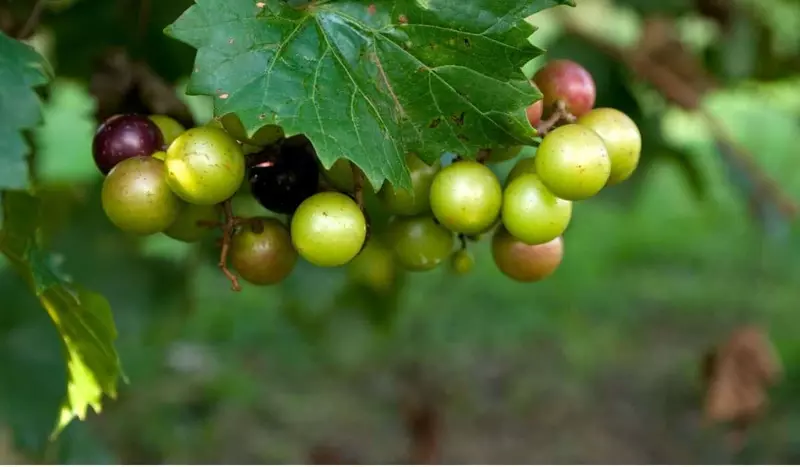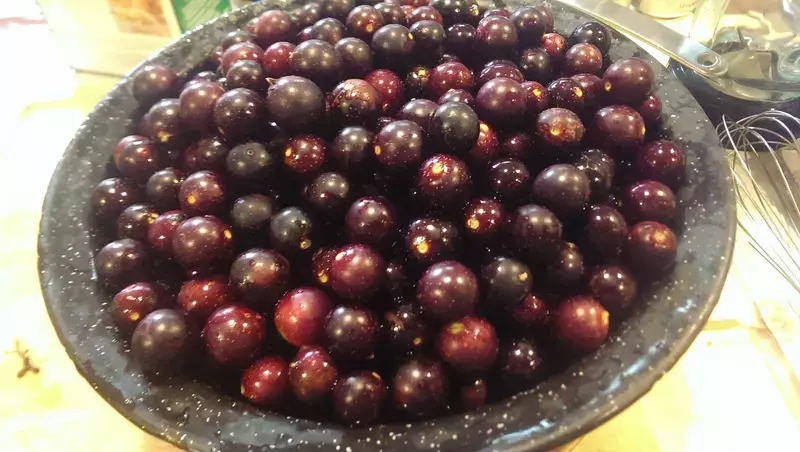The question that is often asked by dog owners Can Dogs Eat Muscadine Grapes? Dogs are known for their curious and playful nature, and it’s not uncommon for them to nibble on anything they can get their paws on, including fruits like grapes. However, before giving your furry friend any food item, it’s essential to know if it’s safe for them to consume or not. In this article, you will learn much more about muscadine grapes and is this safe for dogs or not. So Let’s Start.
What Are Muscadine Grapes?
Muscadine grapes are a specific type of grape that is native to the southeastern United States. They are known for their sweet and juicy flavor and are often used to make wine, juice, and jelly. Muscadine grapes are typically larger and sweeter than other types of grapes and have a thicker skin that makes them more resistant to disease.
They are also a good source of antioxidants and contain high levels of vitamins and minerals, including vitamin C, vitamin K, and iron. Because of their unique flavor and health benefits, muscadine grapes have become a popular food item and are widely consumed in the southeastern United States.
Are Grapes Safe for Dogs to Eat?

Can Dogs Eat Muscadine Grapes? No Grapes, including muscadine grapes, have been known to cause toxicity in dogs, leading to serious health issues. According to the American Kennel Club, grapes and raisins are toxic to dogs, and consuming even a small amount can lead to kidney failure. The exact substance that causes the toxicity is not yet known, but it’s essential to keep grapes and raisins away from dogs.
Can Dogs Eat Muscadine Grapes?
Can Dogs Eat Muscadine Grapes? No Muscadine grapes are a specific variety of grapes that are native to the southeastern United States and are known for their sweet and juicy flavor. While they are safe for human consumption, it’s essential to note that they are not safe for dogs.
Symptoms of Grape Toxicity in Dogs

If your dog has ingested grapes or raisins, it’s crucial to watch for symptoms of toxicity, which can include:
- Vomiting
- Diarrhea
- Lack of appetite
- Abdominal pain
- Increased thirst and urination
- Oliguria (decreased urine production)
- Anuria (absent urine production)
- Depression
- Weakness
- Seizures
If you suspect your dog has ingested grapes or raisins, it’s essential to seek veterinary care immediately. The quicker you get treatment, the better the prognosis for your furry friend.
Read Also: Can Dogs Eat Radicchio? Best Pet Mat
Treatment for Grape Toxicity in Dogs
Treatment for grape toxicity in dogs depends on how soon after ingestion the symptoms are noticed and how much the dog has consumed. In some cases, inducing vomiting within two hours of ingestion can remove the grapes from the dog’s system, preventing further absorption. In severe cases, hospitalization, fluid therapy, and other treatments may be necessary.
Conclusion:
Can Dogs Eat Muscadine Grapes? It’s not safe for dogs to consume muscadine grapes, just like regular grapes and raisins. The toxicity of grapes and raisins in dogs can lead to serious health issues, including kidney failure, and it’s essential to keep them away from dogs. If you suspect your dog has ingested grapes or raisins, seek veterinary care immediately. By following these precautions, you can help ensure the health and well-being of your furry friend.
What should I do if my dog has eaten muscadine grapes?
If you suspect that your dog has eaten muscadine grapes or any other grape products, you should contact your veterinarian immediately. Your vet may recommend inducing vomiting or other treatments to help prevent or treat potential toxicity.
Can a small amount of muscadine grapes harm a dog?
It’s hard to say for sure, but it’s best to err on the side of caution and avoid feeding your dog any grapes or raisins. Even a small amount could potentially cause harm, so it’s best to keep these foods out of reach of your pet.
What are the symptoms of grape toxicity in dogs?
If a dog has eaten grapes or raisins, they may experience symptoms such as vomiting, diarrhea, lethargy, and decreased appetite. In severe cases, dogs can develop kidney failure, which can be life-threatening.
Are muscadine grapes toxic to dogs?
There is no definitive answer to this question as the toxicity of muscadine grapes to dogs is not well established. However, it is known that grapes and raisins can be toxic to some dogs, causing kidney failure in severe cases.
What are muscadine grapes?
Muscadine grapes are a type of grape that is native to the southeastern region of the United States. They are often used for making wine and can be eaten raw or cooked.
Can Dogs Eat Muscadine Grapes?
It’s best to avoid feeding dogs muscadine grapes as their potential toxicity is not well established and could harm them.
